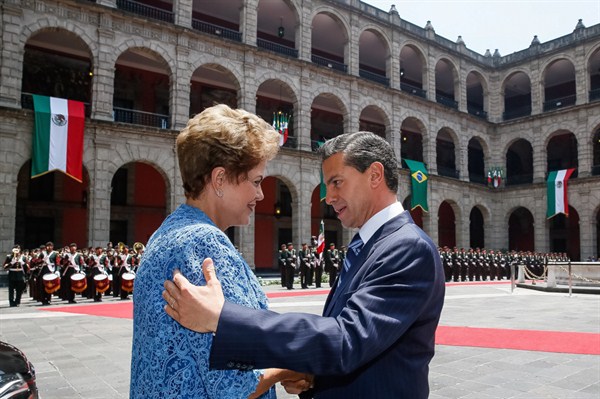Mexican President Enrique Pena Nieto hosted his Brazilian counterpart, Dilma Rousseff, in Mexico City late last month, where the two leaders signed an economic accord aimed at doubling trade volumes by 2025. They also talked about Brazil’s scandal-ridden state-owned oil giant Petrobras partnering with the Mexican oil company Pemex, as Mexico’s liberalized energy market opens up to joint ventures. Pena Nieto and Rousseff, who have a history of cool personal ties, finally seemed to be coming together.
But when it came to speaking about the state of relations between their two countries, they were not on the same page. Pena Nieto claimed the bilateral relationship had been “reinvented,” while Rousseff urged both countries to not “turn their backs to one another.” The Economist likened the discord to a mistaken pairing of the nation’s iconic drinks: “Tequila and caipirinha are both intoxicating but most people prefer not to blend them.”
Aloofness of this sort has been the norm over the past decade, as Mexico and Brazil waged an undeclared struggle for regional leadership. The two nations backed regional groupings and trade regimes built around geographies that conveniently excluded the other. In 2008, Brazil helped broker the Union of South American Nations (UNASUR), a mechanism to promote political and trade integration comprising continental South America. Mexico, in turn, helped breathe life into the Pacific Alliance, a trade grouping designed to bring together nations with a Pacific coast, in 2011.

